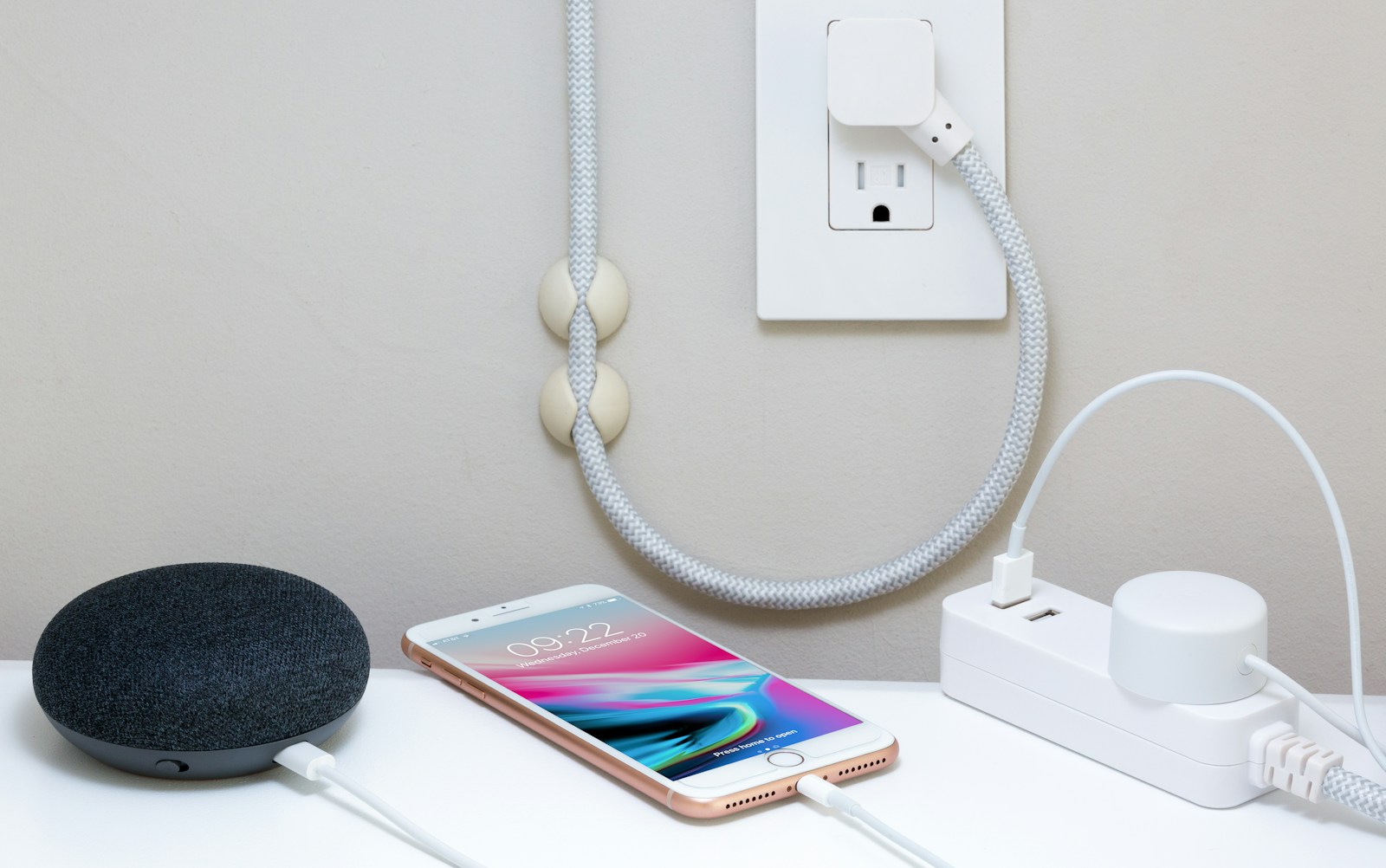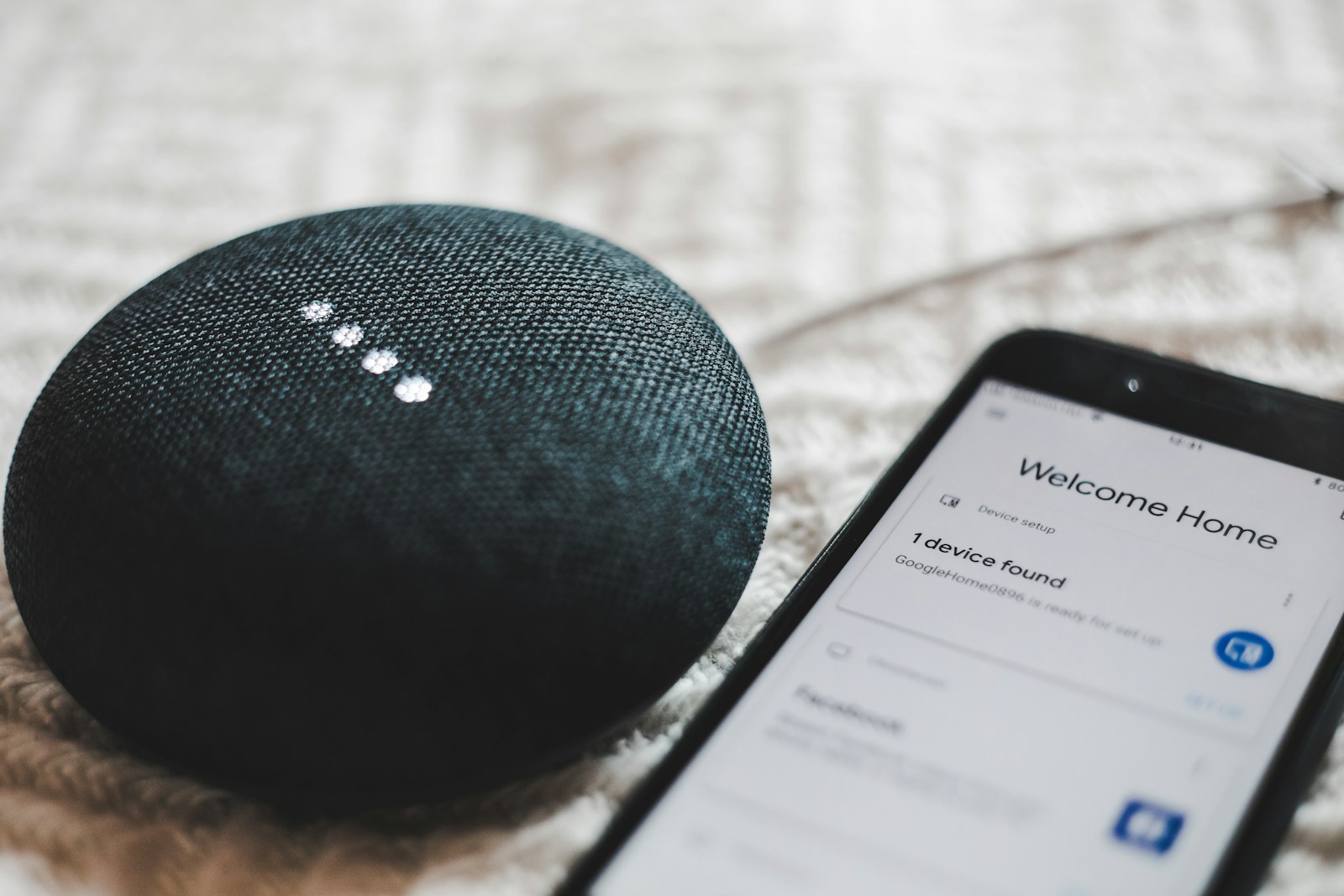Smart home technology has undergone significant evolution over the years, transforming the way we interact with our living spaces.
From simple automated systems to sophisticated AI-powered assistants, the landscape of smart home technology has advanced rapidly. This evolution is propelled by the desire for convenience, efficiency, and connectivity in our daily lives.
The introduction of voice-controlled assistants like Amazon Echo and Google Home has revolutionized smart home technology, making it more accessible and user-friendly. These devices have enhanced the way we control our smart devices, manage our schedules, and access information at home with just a simple voice command. As the technology continues to evolve, we can expect even more intuitive and seamless integration of smart home devices into our everyday routines.
Voice Recognition Technology Advancements
Voice recognition technology has come a long way in recent years, with significant advancements enhancing its accuracy and efficiency. This technology enables smart home assistants to interpret and respond to voice commands with remarkable precision, revolutionizing the way we interact with our devices. Improved natural language processing algorithms and machine learning techniques have played a key role in enhancing the capabilities of voice recognition technology, making it an integral component of modern smart homes.
The continuous refinement of voice recognition technology has enabled smart home assistants to understand a wider range of accents, dialects, and languages, catering to diverse user needs. Additionally, the integration of advanced noise-canceling algorithms has enhanced the ability of smart devices to accurately capture voice commands even in noisy environments. As a result, users can enjoy seamless interactions with their smart home assistants, further blurring the lines between human and machine communication.
Key Players in the Smart Home Assistant Market
Amazon, with its Alexa-enabled devices, has solidified itself as a dominant player in the smart home assistant market. The Echo lineup offers a wide range of options, from the compact Echo Dot to the premium Echo Show, catering to various needs and preferences.
Google Assistant, embedded in Google Home devices, competes closely with Amazon Alexa, offering seamless integration with other Google services and devices. With constant updates and improvements, Google continues to enhance the capabilities of its smart home assistant, positioning itself as a formidable competitor in the market.
Integration of Artificial Intelligence in Smart Home Devices
Artificial intelligence (AI) has become increasingly intertwined with smart home devices, revolutionizing the way we interact with our homes. By incorporating AI into smart home technology, devices can learn from user behaviors and adapt to individual preferences. This level of personalization not only enhances convenience but also promotes efficiency in managing household tasks.
The integration of AI in smart home devices enables them to anticipate users’ needs and automate various processes, such as adjusting temperature settings, managing energy consumption, and even ordering groceries. This seamless interaction between users and their smart home assistants creates a more intuitive and user-friendly experience, ultimately simplifying daily routines and enhancing overall comfort within the home.
Benefits of Voice-Controlled Smart Home Assistants
Voice-controlled smart home assistants offer unparalleled convenience and efficiency to users in managing various tasks within their homes. With just a simple voice command, individuals can control appliances, adjust lighting, set reminders, and even access information hands-free. This hands-free operation not only enhances the user experience but also caters to individuals with mobility impairments, allowing them to navigate their living spaces with ease.
Moreover, voice-controlled smart home assistants facilitate seamless integration of different devices and systems within a household, creating a cohesive and interconnected environment. Users can effortlessly connect and control multiple smart devices, such as thermostats, security cameras, and entertainment systems, through a central voice-activated hub. This centralized control not only streamlines daily routines but also empowers users to customize their living spaces according to their preferences and lifestyles effortlessly.

Challenges and Concerns with Voice-Controlled Smart Home Assistants
Voice-controlled smart home assistants have undoubtedly revolutionized the way we interact with our homes, offering convenience and efficiency like never before. However, along with their numerous benefits, there are also challenges and concerns that come with using these devices. One primary concern is the issue of privacy and data security. As these assistants constantly listen for commands, there is a potential risk of sensitive information being captured and misused. Users must remain vigilant and ensure that their devices are equipped with robust security measures to protect their privacy.
Another challenge is the potential for misinterpretation of commands, leading to incorrect actions being taken by the smart home assistant. This can result in frustration and confusion for users, undermining the very purpose of having a voice-controlled system in place. Additionally, the reliance on voice recognition technology means that these assistants may struggle to understand accents, dialects, or speech impediments, limiting their accessibility and usability for a diverse range of users. Addressing these challenges will be crucial in ensuring that voice-controlled smart home assistants continue to enhance our daily lives effectively.
Future Trends in Smart Home Assistant Development
One significant future trend in the development of smart home assistants is the increased focus on personalized user experiences. Companies are investing heavily in enhancing machine learning algorithms to better understand individual user preferences and habits. This customization will enable smart home assistants to provide more tailored and proactive assistance to users, further integrating these devices into daily routines.
Another key trend on the horizon is the expansion of interoperability among smart home devices and assistants. With the growing number of devices in the market, there is a pressing need for improved communication and compatibility between different brands and platforms. Industry leaders are working towards developing universal standards and protocols to ensure seamless integration and enhanced functionality for consumers.
Impact of Voice-Controlled Smart Home Assistants on Daily Life
Voice-controlled smart home assistants have revolutionized daily living by providing unprecedented convenience and efficiency. These devices allow users to control various aspects of their homes simply by issuing verbal commands, making tasks such as adjusting thermostats, playing music, and even ordering groceries an effortless endeavor. The seamless integration of these assistants into daily routines has not only enhanced comfort and convenience but has also fundamentally transformed the way individuals interact with their living spaces.
Moreover, the impact of voice-controlled smart home assistants transcends mere convenience, as they also cater to individuals with specific accessibility needs. By enabling hands-free operation of various devices and services, these assistants empower users with physical disabilities to navigate their homes more independently and comfortably. The inclusive nature of smart home assistants underscores their ability to positively influence the quality of life for a diverse range of individuals, highlighting the breadth of their impact on modern daily living.
Security and Privacy Issues in Smart Home Assistant Usage
As smart home technology becomes more prevalent in households, security and privacy issues have come to the forefront of concerns among users. One major issue is the potential vulnerability of voice-controlled smart home assistants to hacking and unauthorized access. Since these devices are constantly listening for commands, there is a risk that sensitive information could be intercepted or misused if not properly secured.
Moreover, privacy concerns arise as data collected by smart home assistants can be stored and potentially shared with third parties without consent. Users may feel uneasy about the amount of personal information these devices capture and how it is being used. Ensuring that smart home assistants follow strict privacy protocols and allow users to have control over their data usage is crucial in mitigating these concerns.
Tips for Choosing the Right Voice-Controlled Smart Home Assistant
When it comes to choosing the right voice-controlled smart home assistant, it is crucial to first consider your specific needs and preferences. Evaluate what tasks you want the assistant to help you with, whether it’s managing your daily schedule, controlling smart home devices, playing music, or providing information. Understanding your requirements will guide you in selecting a device that aligns with your lifestyle and expectations.
Additionally, take into account the compatibility of the voice-controlled smart home assistant with your existing devices and systems. Ensure that the assistant you choose can seamlessly integrate with other smart home products you already own, such as smart lights, thermostats, or security cameras. Checking for compatibility will help you create a cohesive smart home ecosystem that works harmoniously together to enhance your overall living experience.
